 By Dr. Jim Dahle, WCI Founder
By Dr. Jim Dahle, WCI FounderKnowledge, i.e., financial literacy, has inspired many of us to change our financial behavior for the better. As we learn things, we naturally wish to apply them in our lives and begin to act. As such, we find it confusing to see others who learn those same things but who do not act, who do not change their lives. Part of what I find so fascinating about medicine is, well, humans. As a group, we are super interesting. Seeing “how the other half lives” is part of what makes work in the emergency department so darn fun. We're not the logical, Spock-like homo economicus that our high school economics teacher used to explain behavior.
When I started this blog in 2011, my focus was mostly on transmitting information. It spewed forth out of my brain onto the pages of the blog. I couldn't write fast enough because I wanted the audience to know all the cool stuff that I had learned. In turn, many readers picked up that information and ran with it. It was gratifying to see people find this information to be just as life-changing as when I discovered it.
However, I wanted more. Not necessarily more information, but to help more people. As I continued the work, I discovered there were plenty of people in my target audience who weren't all that interested in learning this information. And even when they were forced to learn the information, they didn't really do anything with it for various reasons. It wasn't changing lives.
I've said for many years that the combination of financial literacy and financial discipline is so rare in our society that possessing both is like having a superpower. But as the years have gone on, my focus has slowly changed from transmitting information to trying to inspire actual behavioral change. It turns out the latter is much more difficult. Today, I want to introduce a resource that might help.
Atomic Habits by James Clear
My family is reading a book, two chapters a week, and then discussing it together each Sunday. The book is called Atomic Habits by blogger, author, and habit specialist James Clear. The book is extremely well-edited, and rather than just expounding on habits and how they work, it introduces a system to develop good habits and drop bad habits. If you have behavior that you would like to change (and who doesn't?), I highly recommend the system.
The system itself is encapsulated in a few figures from the book.
Essentially, Clear argues that all behavior is driven by the desire to solve a problem, either gaining a reward or avoiding pain. So, the purpose of habits—activities done repeatedly and at least somewhat automatically—is to solve the problems you face. The cue (what makes you think about it) and craving (desire) are part of the problem phase. The response (the habit) and the reward (what you receive for doing the habit) are part of the solution phase.
The book itself is mostly just an explanation of each of these steps with illustrative examples. As you read about and learn the system, it all seems so obvious. But I've never seen it explained so clearly. Making good habits obvious, attractive, easy, and satisfying is the key to beginning and maintaining them. Likewise, making bad habits invisible, unattractive, difficult, and unsatisfying will help you get rid of them and avoid picking them up.
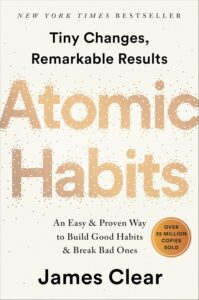 Making it obvious/invisible is associated with the cue in the habit loop. Making it attractive/unattractive is associated with craving, the second step in the habit loop. Making it easy/difficult relates to the response, and making it satisfying/unsatisfying relates to the reward. Straightforward, right?
Making it obvious/invisible is associated with the cue in the habit loop. Making it attractive/unattractive is associated with craving, the second step in the habit loop. Making it easy/difficult relates to the response, and making it satisfying/unsatisfying relates to the reward. Straightforward, right?
However, there are a ton of pearls haphazardly tossed into the book that I found enlightening and wanted to share.
Habits Compound
“It is so easy to overestimate the importance of one defining moment and underestimate the value of making small improvements on a daily basis . . . improving by 1% isn't particularly notable—sometimes it isn't even noticeable—but it can be far more meaningful . . . Habits are the compound interest of self-improvement. The same way that money multiplies through compound interest, the effect of your habits multiply as you repeat them. It is only when looking back two, five, or perhaps 10 years later that the value of good habits and the cost of bad ones becomes strikingly apparent.”
Productivity, stress, knowledge, negative thoughts, relationships, and outrage all compound—just like money does.
More information here:
Best Financial Books for Doctors
Systems Matter More Than Goals
“I began to realize that my results had very little to do with the goals I set and nearly everything to do with the systems I followed . . . Goals are about the results you want to achieve. Systems are about the process that leads to those results . . . problems arise when you spend too much time thinking about your goals and not enough time designing your systems. [Problems like:]
Winners and losers have the same goals Achieving a goal is only a momentary change Goals restrict your happiness Goals are at odds with long-term progress”Cast Votes for the Person You Wish to Become
I loved how he points out that winners and losers have the same goals. How obvious, yet true! But take it a step further. Don't just focus on your goals. And don't just focus on the systems to get you to those goals. Focus on your identity, i.e., the person you want to be.
“Improvements are only temporary until they become part of who you are.
The goal is not to read a book, the goal is to become a reader. The goal is not to run a marathon, the goal is to become a runner. The goal is not to learn an instrument, the goal is to become a musician . . .The biggest barrier to positive change at any level—individual, team, society—is identity conflict. Good habits can make rational sense, but if they conflict with your identity, you will fail to put them into action.”
When you view yourself as a person who doesn't miss workouts, who manages their money well, who is punctual, who doesn't waste time on social media, and who treats others kindly, you will become that person. You've heard the phrase that your hearse won't have a trailer hitch. If there is an afterlife, all you can take with you is what you have become. So, focus on becoming rather than acquiring. As Montgomery Gentry sings, “That's something to be proud of, that's a life you can hang your hat on.”
When you think about habits as adopting a new identity, there are only two steps:
Decide the type of person you want to be Prove it to yourself with many small winsEvery time you go to the gym, complete a Backdoor Roth contribution, or avoid buying something you don't actually want or need, you're casting a vote in favor of that new identity. Every action is a vote for the type of person you wish to become. Like any election, the vote doesn't have to be unanimous. You just want to win the majority of the time.
Habits Create Freedom
“Habits do not restrict freedom. They create it. In fact, the people who don't have their habits handled are often the ones with the least amount of freedom. Without good financial habits, you will always be struggling for the next dollar . . . If you're always being forced to make decisions about simple tasks—when should I work out, where do I go to write, when do I pay the bills—then you have less time for freedom. It's only by making the fundamentals of life easier that you can create the mental space needed for free thinking and creativity . . . Building habits in the present allows you to do more of what you want in the future.”
I've been preaching that to my kids for years. Smoking cigarettes isn't freedom; it's slavery.
More information here:
The Tale of 2 Books (and How I Broke the Binding on My Unwritten Instruction Manual)
Your Willpower Is Limited
“A small change in what you see can lead to a big shift in what you do. As a result, you can imagine how important it is to live and work in environments that are filled with productive cues and devoid of unproductive ones. Thankfully, there is good news in this respect. You don't have to be the victim of your environment. You can also be the architect of it . . . Create an environment where doing the right thing is as easy as possible.”
It's hard to eat poorly if there is no junk food in your house.
“If you're overweight, a smoker, or an addict, you've been told your entire life that it is because you lack self-control . . . However . . . when scientists analyze people who appear to have tremendous self-control, it turns out those individuals aren't all that different from those who are struggling. Instead, ‘disciplined' people are better at structuring their lives in a way that does not require heroic willpower and self-control. In other words, they spend less time in tempting situations. The people with the best self-control are typically the ones who need to use it the least.”
Use your limited amount of willpower on the decisions that matter most. When it comes to personal finances, concentrate on the “big rocks,” not the daily lattes.
Use Peer Pressure in a Positive Way
“We tend to imitate the habits of three social groups: the close (family and friends), the many (the tribe), and the powerful (those with status and prestige.) One of the most effective things you can do to build better habits is to join a culture where (1) your desired behavior is the normal behavior, and (2) you already have something in common with the group.”
Become a white coat investor and get rich!
Repetition Is Key
“One of the most common questions I hear is, ‘How long does it take to build a new habit?' But what people really should be asking is, ‘How many does it take to form a new habit?' That is, how many repetitions are required to make a habit automatic? There is nothing magical about time passing with regard to habits . . . Your current habits have been internalized over the course of hundreds, if not thousands, of repetitions. New habits require the same level of frequency. You need to string together enough successful attempts until the behavior is firmly embedded in your mind and you cross the Habit Line.”
A picture is worth 1,000 words when it comes to dispelling the 21-day myth.
Master the Habit of Showing Up
“Even when you know you should start small, it's easy to start too big . . . The most effective way to counteract this tendency is to use the Two-Minute Rule, which states, ‘When you start a new habit, it should take less than two minutes to do.' You'll find that nearly any habit can be scaled down into a tw0-minute version . . . ‘Run three miles' becomes ‘Tie my running shoes.' . . . A new habit should not feel like a challenge. What you want is a ‘gateway habit' that naturally leads you down a more productive path . . . The point is to master the habit of showing up. The truth is, a habit must be established before it can be improved . . . You have to standardize before you can optimize.”
“A habit must be established before it can be improved” is such a powerful mindset change for most of us.
More information here:
A Fool and His Money: Does This Classic Book Still Hold Up?
Use Technology to Automate
“Of course, there are many ways to automate good habits and eliminate bad ones. Typically, they involve putting technology to work for you. Technology can transform actions that were once hard, annoying, or complicated into behaviors that are easy, painless, and simple. This is particularly useful for behaviors that happen too infrequently to become habitual. Things you have to do monthly or yearly—like rebalancing your investment portfolio—are never repeated frequently enough to become a habit, so they benefit in particular from technology ‘remembering' to do them for you . . . When you automate as much of your life as possible, you can spend your effort on the tasks machines cannot do yet.”
You paid $1,500 for that mega computer in your pocket. It contains the world's accumulated knowledge, and it replaced dozens of other technological devices. Put it to work to improve your life! My wife and kids are Duolingo addicts. I can't believe how important maintaining their “streak” has become to them. Technology can be super powerful when it comes to habits.
Never Miss Twice
“No matter how consistent you are with your habits, it is inevitable that life will interrupt you at some point. Perfection is not possible . . . Whenever this happens to me, I try to remind myself of a simple rule: never miss twice . . . The first mistake is never the one that ruins you. It is the spiral of repeated mistakes that follows. Missing once is an accident. Missing twice is the start of a new habit . . . I think this principle is so important that I'll stick to it even if I can't do a habit as well or as completely as I would like. Too often, we fall into an all-or-nothing cycle with our habits. The problem is not slipping up, the problem is thinking that if you can't do something perfectly, then you shouldn't do it at all . . . This is why ‘bad workouts' are often the most important ones . . . Simply doing something . . . is huge. Don't put up a zero. Don't let losses eat into your compounding.”
Religious leader J. Golden Kimball was famous for saying, “I may not always walk the straight and narrow, but I sure as hell try to cross it as often as I can.” He also said they couldn't throw him out of the church because “I repent too damn fast!” When you screw up with your habits, become a person who “repents fast.”
If you'd like to get a better handle on your habits, read Atomic Habits and apply its lessons in your life.
Changing Your Financial Behavior
Becoming financially successful is less about LEARNING personal finance and investing and more about DOING personal finance and investing. You have to:
Work hard to earn money Make sure you're working smarter and not just harder to maximize your income Save more by spending less and carving out income that can be used to retire debt and build wealth Make payments on debt Write down an investing plan Open, close, and transfer accounts Put in buy and sell orders for securities Rebalance the portfolio Stay the course during market downturns Buy insurance Get a will File your taxesThere's a lot of doing required. Automate what you can. Build good habits. Use your limited motivation on what matters most. Little by little, you will become a financially successful person. In turn, that success can be used to improve the lives of those around you.
Why are financial habits so important? Why is doing so much harder than just learning? What did you think of Atomic Habits?
The post Changing Behavior with Atomic Habits appeared first on The White Coat Investor - Investing & Personal Finance for Doctors.




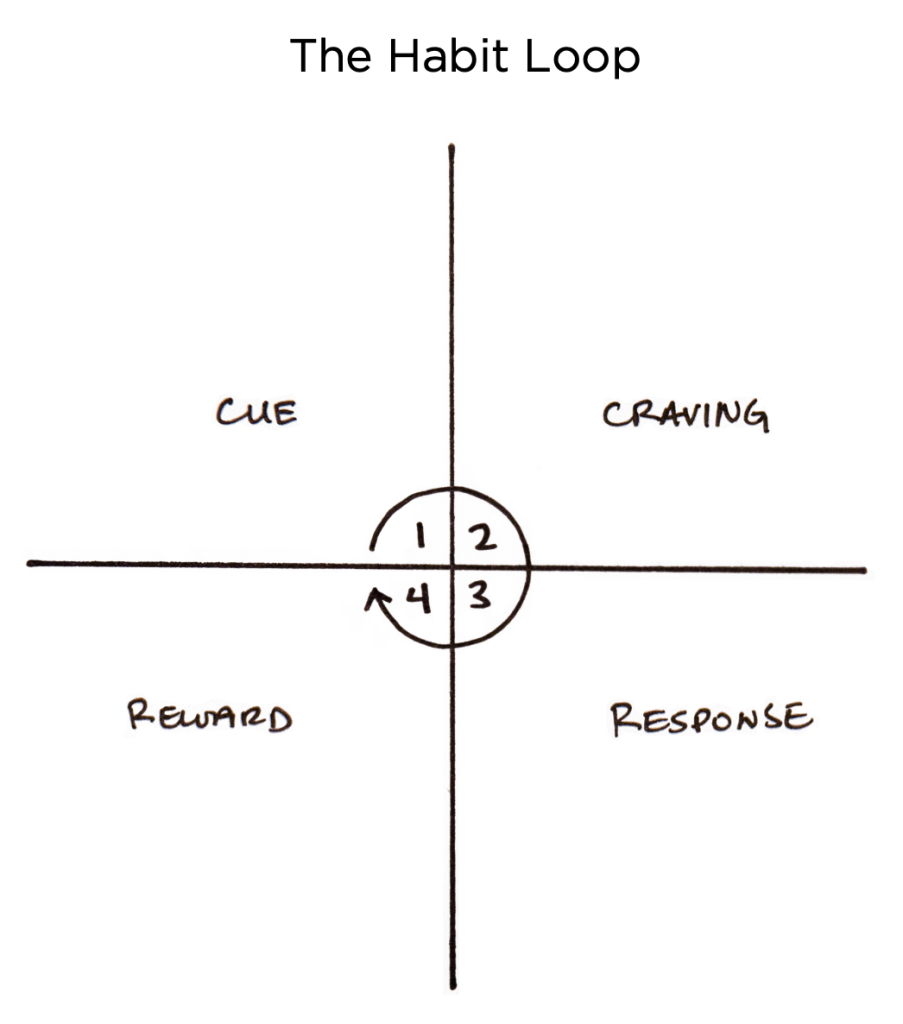
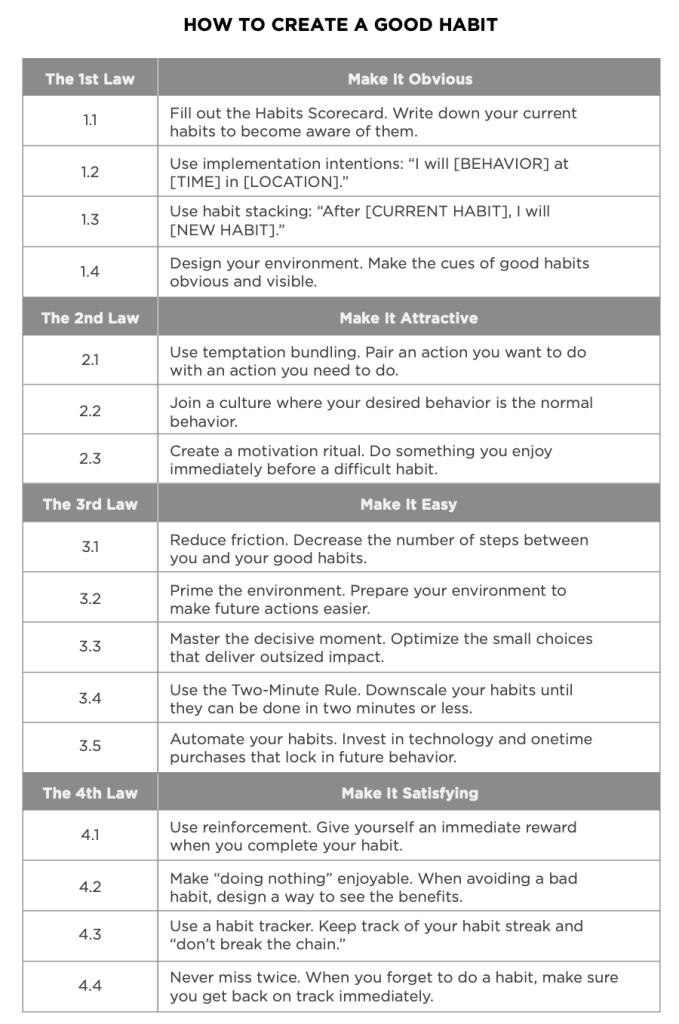
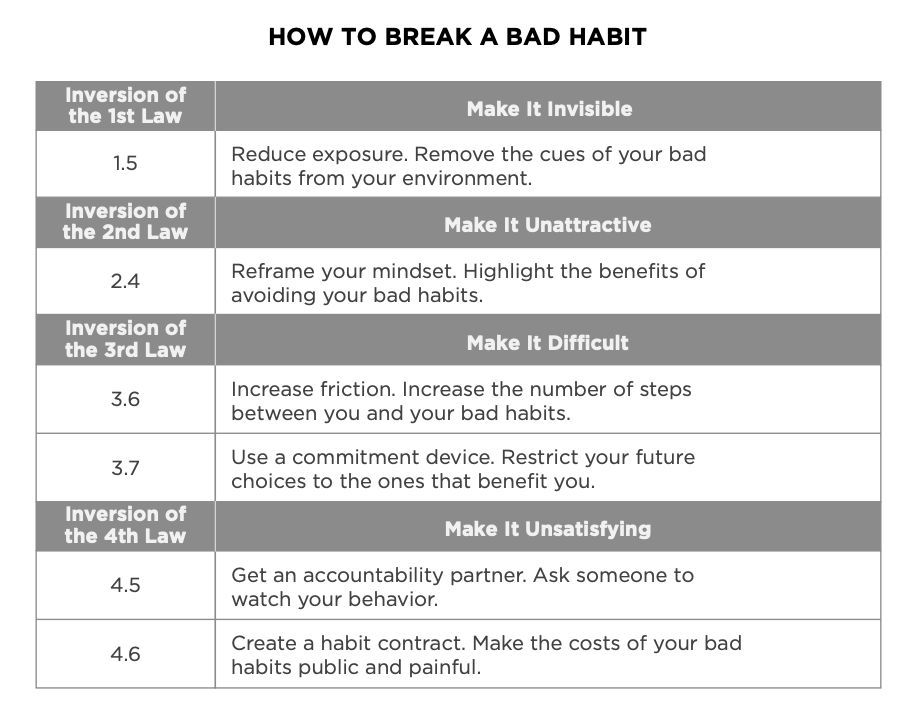

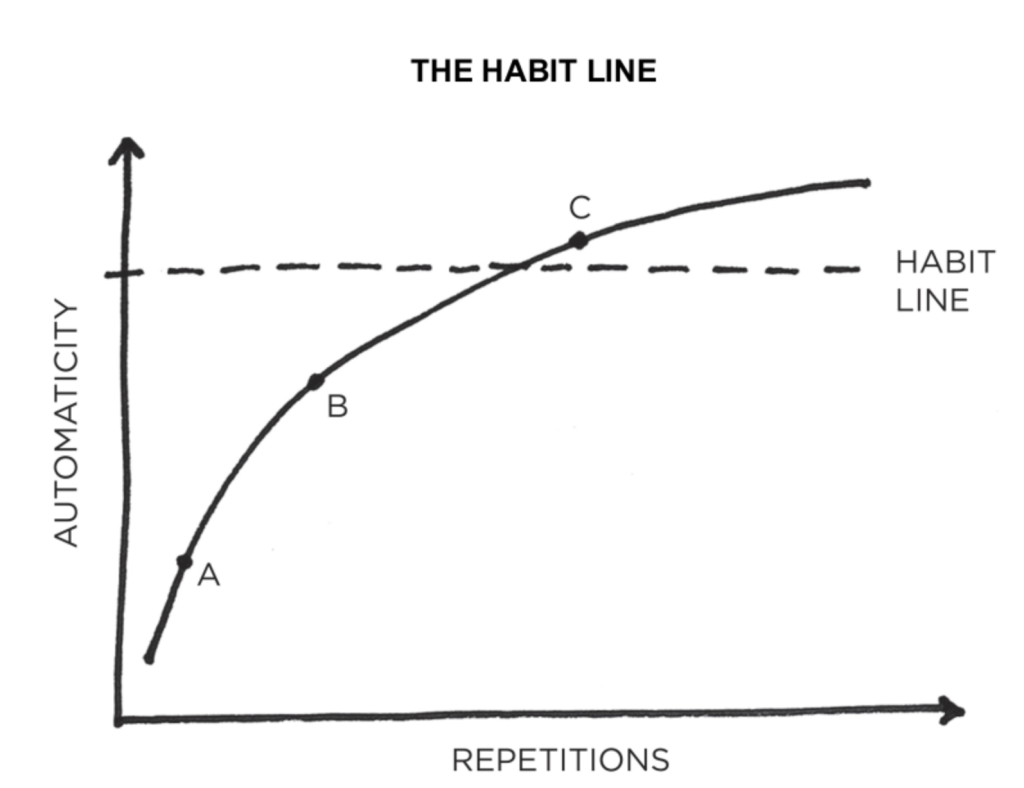












 Bengali (Bangladesh) ·
Bengali (Bangladesh) ·  English (United States) ·
English (United States) ·